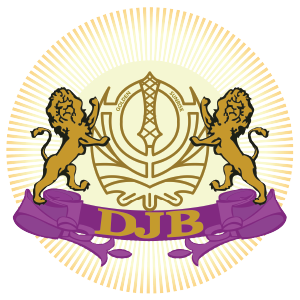Hiring process is hard and it’s getting harder by the day. We live in a time where we have to hire and train employees who are just as good, but also different from the generations before them. It’s not an easy process, and that’s why you need to be on top of what’s happening in the HR world.
How Recruiters and Hiring Managers Change Their Mindset in Hiring Process
In order to stay ahead of the curve, recruiters and hiring managers need to be open to change and willing to adapt their mindset. Here are some trends that will change the way of hiring process in the future:
1. Increasing focus on candidate experience:
In the past, the primary focus of recruiting has been on filling positions as quickly and efficiently as possible. However, this is changing. Candidates are now expecting a more personalized and positive experience throughout the recruiting process. As a result, recruiters need to shift their focus from quantity to quality, and make sure that each candidate has a great experience.
2. Use of AI and data analytics for hiring process:
With the increasing use of AI and data analytics in recruiting, candidates can expect a more personalized and targeted experience. Recruiters will be able to use data to identify top talent, assess fit for specific roles, and predict performance. As a result, candidates will be able to apply for jobs that are better suited for them, which will lead to higher satisfaction levels and improved retention rates.
3. Increased use of social media for hiring process:
Social media is playing an increasingly important role in recruiting. Candidates are using social media to research companies and find out about job openings. In addition, social media can be used to screen candidates and assess fit for specific roles. As a result, recruiters need to have a strong presence on social media and use it effectively to reach out to candidates.
4. Emerging markets:
With the globalization of the economy, there is an increasing demand for talent in emerging markets. As a result, recruiters need to be open to recruiting candidates from around the world. In addition, they need to be aware of cultural differences and how to best attract and assess candidates from different cultures.
5. Increased use of mobile for hiring process:
With the rise of smartphones and tablets, more candidates are using mobile devices to search for jobs and research companies. As a result, recruiters need to optimize their website and job postings for mobile devices. In addition, they need to provide a seamless and convenient experience for candidates who apply via mobile devices.
The Rise of the Automated Interview Questions for Hiring Process
1. The Rise of the Automated Interview Questions
The traditional hiring process is under threat from a new breed of automated interview questions. These questions are designed to test a candidate’s skills and abilities in a more efficient and effective way, and they’re becoming increasingly popular with employers.
2. The Death of the CV
The CV is no longer the be-all and end-all of the hiring process. In fact, it’s becoming increasingly irrelevant as employers focus on what candidates can actually do, rather than what they’ve done in the past.
3. The End of the Job Advertisements
The days of job advertisements in newspapers and online job boards are numbered. With more and more employers using social media to find candidates, job ads are becoming redundant.
4. The Birth of Social Recruiting
Social media is playing an increasingly important role in the recruitment process, with LinkedIn leading the charge. Candidates are being found and hired through their social networks, rather than through traditional channels.
5. Big Data Is Changing The Way We Hire
Big data is providing employers with new insight into the hiring process. By analysing vast amounts of data, employers can identify patterns and trends that were previously hidden
The Impact on Professional Development Programs in Hiring Process

It is no secret that the hiring process has changed dramatically in recent years. With the advent of new technologies and the ever-changing landscape of the workforce, employers are looking for new ways to find and attract top talent. As a result, professional development programs are becoming increasingly popular as a tool for employers to develop their workforce.
There are many benefits to professional development programs, both for employer and employee. Employers can use these programs to attract and retain top talent, while employees can use them to improve their skillset and advance their career. However, there are also some challenges that come with professional development programs. For example, employers need to ensure that these programs are effective and meet the needs of their workforce, while employees need to be willing to invest time and effort into these programs.
Despite the challenges, professional development programs are likely to continue to grow in popularity as a tool for employers to develop their workforce. With the right planning and execution, these programs can be an invaluable asset for both employer and employee alike.
The Role of Artificial Intelligence in the Job Market
Artificial intelligence (AI) is playing an increasingly important role in the job market. AI-powered tools can help identify qualified candidates, automate repetitive tasks, and provide insights into hiring patterns.
AI can help organizations save time and money by automating repetitive tasks in the hiring process. For example, AI can be used to sift through resumes and identify candidates that match the desired qualifications. AI can also be used to conduct initial phone screens or to schedule interviews.
In addition to saving time, AI can also help organizations improve their hiring accuracy. By analyzing data from past hires, AI can provide insights into which candidate characteristics are most predictive of success in a given role. This information can be used to adjust job descriptions or tailor the interview process to better assess these characteristics.
AI is also beginning to play a role in employee retention. By tracking employee engagement and performance data, AI-powered tools can identify early warning signs of turnover risk. This information can be used to develop targeted interventions that improve retention rates.
As AI continues to evolve, it will become an even more integral part of the job market. Organizations that embrace AI-powered tools will be well-positioned to streamline their hiring processes, improve their accuracy, and retain their top talent.
The Importance of Manager for Employee Engagement
Manager plays a vital role in employee engagement. With the ever-changing work landscape, it is important for managers to be able to adapt and change the way they engage with employees. There are a few key trends that will change the way managers engage with employees in the future:
1. The rise of remote work
With more and more companies offering remote work options, there will be a need for managers to learn how to effectively manage employees who are not in the same physical space. This will require new skills and strategies for communication, collaboration, and engagement.
2. The increasing importance of diversity and inclusion
As the workforce becomes increasingly diverse, it is crucial for managers to create an inclusive environment where all employees feel valued and respected. This includes understanding and appreciating different cultures, backgrounds, and perspectives.
3. The changing demographics of the workforce
As the Baby Boomer generation starts to retire, there will be a shift in the demographics of the workforce. This means that managers will need to adjust their management style to accommodate different generations of employees.
What to Expect in the Future
There are a few trends that will change the way of hiring process in the future. The first one is that companies will start to use more data when they are making hiring decisions. They will look at things like educational background, work history, and skills to make sure that they are hiring the right person for the job.
Another trend is that companies will start to focus on soft skills more than hard skills. This is because hard skills can be taught, but soft skills are harder to come by. Companies want to hire people who are good communicators, have a positive attitude, and are able to work well in a team.
Lastly, there will be a shift from full-time employees to contractors and freelancers. This is because it is often cheaper and easier to find people who can do specific tasks that you need rather than hiring someone full-time.
Conclusion
The hiring process is constantly evolving, and it’s important to stay ahead of the curve. In this article, we’ve discussed five trends that we believe will shape the future of hiring. By staying informed of these trends and incorporating them into your own hiring process, you can ensure that you’re always making the best possible decisions for your business. Thanks for reading!
Follow us to stay updated on LinkedIn, Facebook, Instagram and Twitter.



